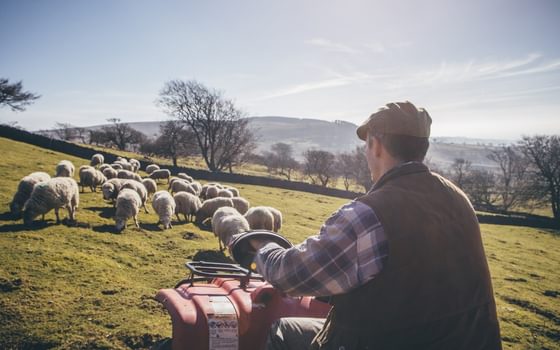Who has the power to improve Britain’s fisheries?
Critics focus on Brussels, but the UK government already has control over its fishing quotas
17 March 2017
Britain’s fisheries found themselves in an unexpected spotlight during last year’s referendum, with insistent claims from the Leave campaign that Brexit would help fishers ‘take back control’ of Britain’s waters and fish stocks.
But the promise that Brexit would lead to control over fishing quotas was a false one. One of the most important issues in fisheries management – how fishing quota limits are allocated to the fishing fleet – is already up to national governments to decide: the UK government has always had the power to change our fisheries for the better.
There are many different ways to manage fishing quota. In our major new report, I examined how 12 EU Member States (Belgium, Denmark, France, Germany, Ireland, Italy, the Netherlands, Poland, Portugal, Spain, Sweden, and the UK) allocate their quota.
The systems in place vary significantly. While fishers in Belgium and the Netherlands fish many of the same species in the same waters, their respective processes are worlds apart in management approach.

To assess the systems in use, we developed a framework of 12 objectives that systems of fishing quotas should meet. These objectives are based around ensuring that the system of fishing rights works for fishers, is good for the public and has a good process.
Using a range of indicators to measure each objective, the quota systems of the UK and other counties are ranked against these objectives.
While some Member States are performing better than others, in all cases fisheries management is shown to be costly to administer and generates little public revenue. Obtaining access to the fishing industry for new entrants is difficult, and there is little transparency in many systems of fishing opportunities.
The results reveal that the UK system performs poorly on many of the objectives.
In general, the UK quota system preserves a status quo in fisheries by guaranteeing quota rights to those with large, historical track records. This system benefits those who have acquired the track records, but it does not benefit small-scale fishers who were not required to record their catches during the reference period, young fishers trying to enter the industry, or the public purse. Neither does this fixed allocation incentivise fishing that protects the ecosystem and fishing communities.
The UK can learn from the best practices of other countries in the report, such as making fishing quotas time-limited and establishing a separate quota reserve that can be used to incentivise better fishing practices and help young fishers enter the industry. New ideas can also be used — such as a differentiated landings tax to incentivise activity in UK ports and an online peer-to-peer quota swapping system.
More must be done by individual governments to improve the UK’s fisheries system to deliver the best results for their fishers and the wider public.
Topics Fisheries & farming






